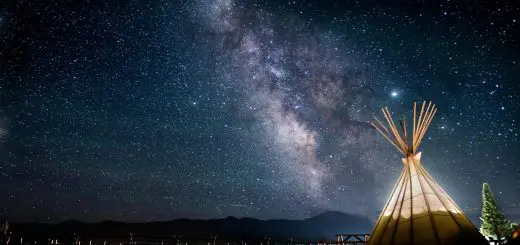Living Off-Grid in a Tiny Home: Tips and Tricks

Looking for more amazing products? Check out our online store and explore our collection here! Happy shopping!
Before diving in, please note: This post is for informational purposes only. If you’d like to know more about how we approach topics, feel free to check out our friendly Disclaimer Page.
Hey there, amazing readers! 
We’re committed to delivering quality posts, and your support (even just sticking around despite the ads) means everything to us. So, bear with us, and thanks for helping us keep the good vibes rolling. Now, on to the fun stuff!
TRANSLATE BUTTON AT THE END OF THE ARTICLE
Living off-grid in a tiny home is a unique and rewarding lifestyle choice.
Imagine waking up to the sounds of nature, basking in the sun’s rays, and having everything you need right at your fingertips—all while minimizing your environmental footprint.
I’ve discovered that while this lifestyle can be incredibly fulfilling, it does come with its own set of challenges and considerations.
Here’s a comprehensive guide packed with tips and tricks to help you thrive while living off-grid in your tiny home.
Understanding Off-Grid Living
Before diving into the specifics, let’s clarify what off-grid living entails.
Self-Sufficiency: Living off-grid means relying on your resources—be it water, energy, or food—rather than the public utilities.
Sustainable Practices: It often involves sustainable practices like solar power, rainwater collection, and composting.
Connection to Nature: This lifestyle encourages a deep connection to the environment, allowing you to live harmoniously with nature.
Understanding these principles will help you make informed decisions as you embark on your off-grid adventure.
Choosing the Right Location
The right location can significantly impact your off-grid experience.
Here are some factors to consider:
Accessibility: Look for a spot that’s accessible year-round.
You don’t want to be stuck in your tiny home during winter due to heavy snow or mudslides.
Natural Resources: Evaluate the availability of natural resources like sunlight for solar panels, water sources, and fertile land for gardening.
Community: Consider the proximity to like-minded individuals or communities.
Sometimes, a little neighborly support can make all the difference.
Choosing the right location can set the stage for a successful off-grid living experience.
Harnessing Solar Power
Solar power is a game changer for off-grid living.
Here’s how to get started:
Assess Your Energy Needs: Calculate your daily energy consumption to determine the size of the solar system you’ll need.
This will guide your investment in solar panels and batteries.
Invest in Quality Equipment: Purchase high-quality solar panels, batteries, and inverters.
It might cost more upfront, but quality equipment will save you money and hassle in the long run.
Consider DIY Installation: If you’re handy, consider installing the system yourself.
There are plenty of resources available online to guide you through the process.
Harnessing solar power can provide you with a reliable and sustainable energy source for your tiny home.
Water Collection and Filtration
Access to clean water is essential for off-grid living.
Here are some tips to secure your water supply:
Rainwater Harvesting: Install gutters and a rainwater collection system to capture rainwater.
Ensure you have a proper storage tank to hold the water.
Filtration Systems: Invest in a good filtration system to ensure the collected water is safe for drinking and cooking.
There are many affordable options available that can be easily installed.
Natural Water Sources: If you have a stream or river nearby, you can filter and purify that water for your use.
Just make sure to research proper filtration methods to avoid contaminants.
Having a reliable water supply is crucial for off-grid living, so plan accordingly.
Efficient Waste Management
Managing waste is an important aspect of living off-grid.
Here are some strategies:
Composting Toilets: Consider installing a composting toilet to reduce water usage and manage waste sustainably.
They’re odorless, eco-friendly, and can be a fun project to set up.
Greywater Systems: Implement a greywater system to recycle water from sinks and showers for use in gardens.
This can help reduce water waste while nourishing your plants.
Waste Reduction: Embrace a minimalist lifestyle by reducing waste at the source.
Purchase items with less packaging, compost food scraps, and recycle whenever possible.
Effective waste management can enhance your off-grid experience and contribute to a healthier environment.
Growing Your Own Food
Growing your own food not only provides fresh produce but also enhances your self-sufficiency.
Here are some tips:
Start Small: Begin with a small garden or even container gardening.
Herbs, lettuce, and tomatoes are great starters that can thrive in limited space.
Learn about Companion Planting: Some plants grow better together.
For example, tomatoes and basil are great companions that can help each other thrive.
Consider Permaculture: This sustainable gardening method mimics natural ecosystems and can be incredibly productive.
It’s all about working with nature rather than against it.
Having a homegrown food source can add to your quality of life and provide a sense of accomplishment.
Embracing Minimalism
Living off-grid naturally encourages a minimalist lifestyle.
Here’s how to embrace it:
Evaluate Your Possessions: Go through your belongings and ask yourself what you truly need.
Keep only those items that bring you joy or serve a practical purpose.
Mindful Purchasing: Before buying anything new, consider if it aligns with your off-grid lifestyle.
Opt for multi-functional items that can serve multiple purposes.
Digital Minimalism: Reduce your digital clutter as well.
Limit screen time and focus on activities that promote connection with nature and self-discovery.
Embracing minimalism can lead to a simpler, more fulfilling life.
Creating Comfortable Living Spaces
Just because you live in a tiny home doesn’t mean you can’t make it cozy.
Here are some tips to create a comfortable living space:
Smart Layout: Utilize your space wisely by arranging furniture to promote flow.
A cozy reading nook by the window can make all the difference.
Personal Touches: Add personal items that make you feel at home—pictures, artwork, or mementos from your travels.
Layer Textures: Incorporate rugs, cushions, and blankets to create warmth and comfort.
Textures can make a small space feel inviting and lived-in.
Creating a cozy atmosphere will help you feel more at home in your tiny space.
Maintaining Your Off-Grid Systems
Once you’ve established your off-grid systems, regular maintenance is essential.
Solar Panel Cleaning: Keep your solar panels clean to ensure optimal efficiency.
A simple wash with water can do wonders.
Check Water Filtration Systems: Regularly inspect and replace filters in your water system to maintain water quality.
Inspect Waste Systems: Regularly check your composting toilet and greywater systems for functionality.
Keeping everything in good working order prevents larger issues down the road.
Consistent maintenance will ensure your off-grid systems continue to function effectively.
Building Community Connections
Even in off-grid living, community connections can be invaluable.
Seek Local Groups: Look for local groups or online forums focused on off-grid living.
Sharing experiences and resources can be beneficial.
Participate in Workshops: Attend workshops on off-grid techniques, gardening, or sustainability.
This not only builds skills but also helps you meet like-minded people.
Share Resources: Whether it’s tools or knowledge, sharing resources fosters a sense of community and connection.
Building connections with others can enhance your off-grid experience and provide much-needed support.
Budgeting for Off-Grid Living
Creating a budget for off-grid living is crucial to ensure long-term sustainability.
Initial Setup Costs: Factor in costs for land, tiny home construction or purchase, and systems like solar panels and water collection.
Ongoing Expenses: Consider ongoing costs such as maintenance, groceries, and potential repairs.
Emergency Fund: Set aside money for unexpected expenses.
Living off-grid can bring surprises, and being prepared can save a lot of stress.
A well-thought-out budget can help you manage finances effectively while living off-grid.
Preparing for Challenges
Living off-grid can be rewarding, but it’s not without its challenges.
Weather Variability: Be prepared for changes in weather.
Have contingency plans in place, especially during extreme conditions.
Limited Resources: Understand that living off-grid may mean fewer resources.
Being adaptable and resourceful will be key.
Isolation: It’s easy to feel isolated at times.
Schedule regular social activities or create a routine that allows for connection with friends or family.
Being aware of potential challenges helps you stay resilient and prepared.
Conclusion: Embracing the Off-Grid Lifestyle
Living off-grid in a tiny home is an adventure filled with opportunities for self-sufficiency, creativity, and connection with nature.
By harnessing solar power, managing water resources, and embracing minimalism, you can create a fulfilling and sustainable lifestyle.
As you embark on this journey, remember to stay adaptable, seek community, and enjoy the beauty of simplicity.
While the path may have its challenges, the rewards of living authentically and sustainably are well worth it.
Here’s to a life of freedom, adventure, and peace!

The Enlightenment Journey is a remarkable collection of writings authored by a distinguished group of experts in the fields of spirituality, new age, and esoteric knowledge.
This anthology features a diverse assembly of well-experienced authors who bring their profound insights and credible perspectives to the forefront.
Each contributor possesses a wealth of knowledge and wisdom, making them authorities in their respective domains.
Together, they offer readers a transformative journey into the realms of spiritual growth, self-discovery, and esoteric enlightenment.
The Enlightenment Journey is a testament to the collective expertise of these luminaries, providing readers with a rich tapestry of ideas and information to illuminate their spiritual path.
Our Diverse Expertise
While our primary focus is on spirituality and esotericism, we are equally passionate about exploring a wide range of other topics and niches 

To ensure we provide the most accurate and valuable insights, we collaborate with trusted experts in their respective domains 
Our blog originally focused on spirituality and metaphysics, but we’ve since expanded to cover a wide range of niches. Don’t worry—we continue to publish a lot of articles on spirituality! Frequently visit our blog to explore our diverse content and stay tuned for more insightful reads.
Hey there, amazing reader! 
Check out our store here and take a peek at some of our featured products below! Thanks for being awesome!










